-
 Thanh toán đa dạng, linh hoạtChuyển khoản ngân hàng, thanh toán tại nhà...
Thanh toán đa dạng, linh hoạtChuyển khoản ngân hàng, thanh toán tại nhà... -
 Miễn Phí vận chuyển 53 tỉnh thànhMiễn phí vận chuyển đối với đơn hàng trên 1 triệu
Miễn Phí vận chuyển 53 tỉnh thànhMiễn phí vận chuyển đối với đơn hàng trên 1 triệu -
 Yên Tâm mua sắmHoàn tiền trong vòng 7 ngày...
Yên Tâm mua sắmHoàn tiền trong vòng 7 ngày...
The Strange Case of Dr. Couney: How a Mysterious European Showman Saved Thousands of American Babies
-

- Mã sản phẩm: 0399175741
- (300 nhận xét)

- Publisher:Blue Rider Press; 1st edition (July 31, 2018)
- Language:English
- Hardcover:304 pages
- ISBN-10:0399175741
- ISBN-13:978-0399175749
- Item Weight:1.1 pounds
- Dimensions:5.9 x 1.2 x 9.1 inches
- Best Sellers Rank:#868,650 in Books (See Top 100 in Books) #588 in Sociological Study of Medicine #910 in History of Medicine (Books) #1,992 in Medical Professional Biographies
- Customer Reviews:4.3 out of 5 stars 295Reviews
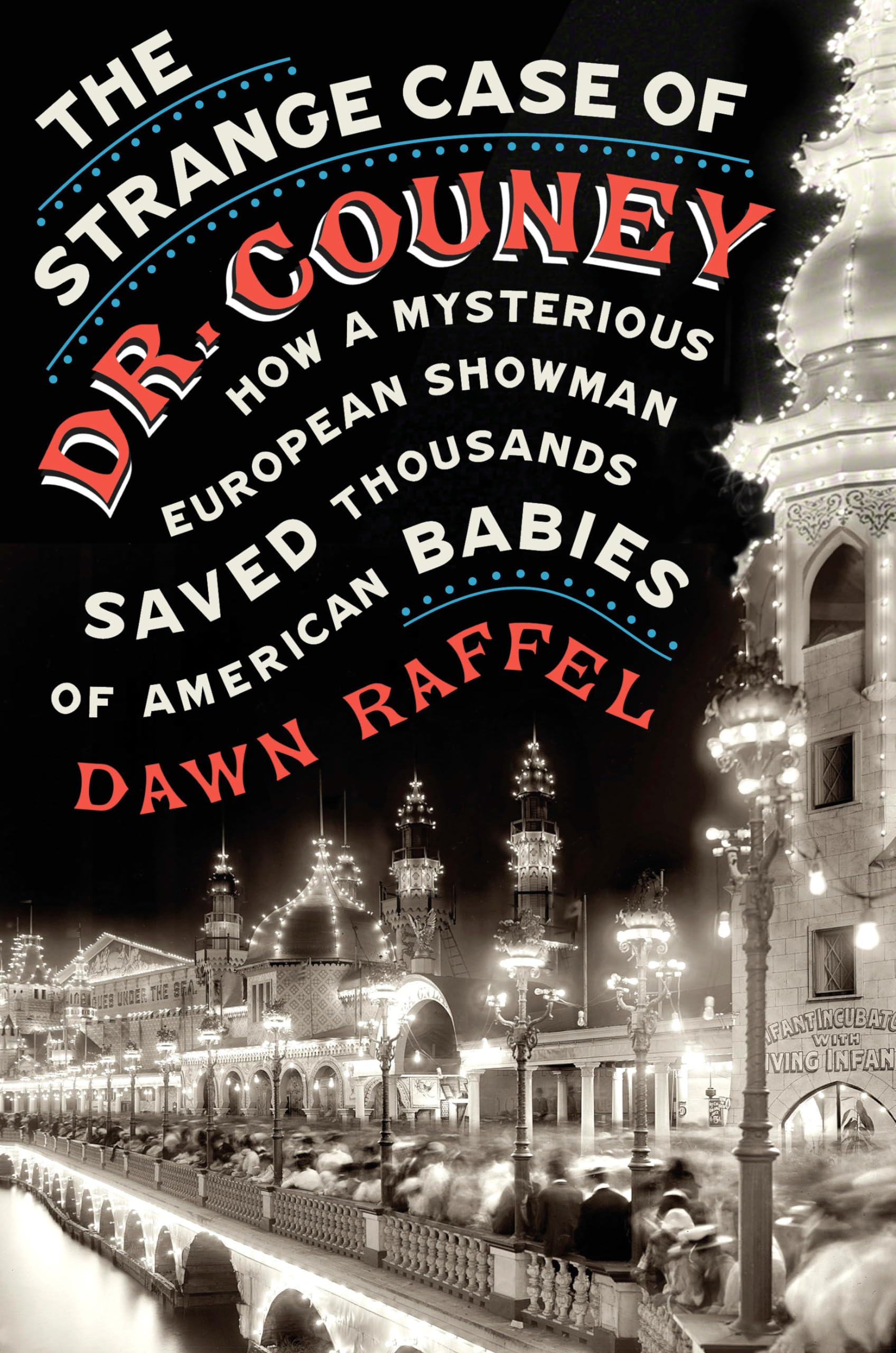
Mô tả sản phẩm
Product Description
“A mosaic mystery told in vignettes, cliffhangers, curious asides, and some surreal plot twists as Raffel investigates the secrets of the man who changed infant care in America.”—NPR, 2018's Great Reads
What kind of doctor puts his patients on display? This is the spellbinding tale of a mysterious Coney Island doctor who revolutionized neonatal care more than one hundred years ago and saved some seven thousand babies. Dr. Martin Couney's story is a kaleidoscopic ride through the intersection of ebullient entrepreneurship, enlightened pediatric care, and the wild culture of world's fairs at the beginning of the American Century.
As Dawn Raffel recounts, Dr. Couney used incubators and careful nursing to keep previously doomed infants alive, while displaying these babies alongside sword swallowers, bearded ladies, and burlesque shows at Coney Island, Atlantic City, and venues across the nation. How this turn-of-the-twentieth-century émigré became the savior to families with premature infants—known then as “weaklings”—as he ignored the scorn of the medical establishment and fought the rising popularity of eugenics is one of the most astounding stories of modern medicine. Dr. Couney, for all his entrepreneurial gusto, is a surprisingly appealing character, someone who genuinely cared for the well-being of his tiny patients. But he had something to hide...
Drawing on historical documents, original reportage, and interviews with surviving patients, Dawn Raffel tells the marvelously eccentric story of Couney's mysterious carnival career, his larger-than-life personality, and his unprecedented success as the savior of the fragile wonders that are tiny, tiny babies.
A New York Times Book Review New & Noteworthy Title
A Real Simple Best Book of 2018
Christopher Award-winner
Review
Praise for The Strange Case of Dr. Couney
An O Magazine Summer 2018 Poolside Read
"Fascinating, mysterious and compelling...written with great style and the energy of a can't-put-down thriller." --The Chicago Tribune
“[The Strange Case of Dr. Couney] is a mosaic mystery told in vignettes, cliffhangers, curious asides, and some surreal plot twists as Raffel investigates the secrets of the man who changed infant care in America.… It's a fascinating historical footnote, compassionately told.” —NPR.org
“In this account, told in a series of non-chronological vignettes, Raffel argues that Couney deserves recognition… Working in the shadow of the eugenics movement, [Couney] insisted that such infants, whom hospitals could seldom save, deserved a chance.” —The New Yorker
"With colorful descriptions of the carnival world and the medical marvels of early neonatalogy, Raffel makes a fascinating case for this unusual pioneer’s rightful place in medical history."
-Publisher's Weekly
“Compelling on many levels… Raffel’s arresting and illuminating work of hidden history should not be missed.” – Booklist
"Many readers will share Raffel's admiration of Couney... The book's title is no hype; this is a startling account of an improbable huckster who made his living promoting a lifesaving device."
-Kirkus Reviews
"With fantastic detail, Raffel brings to life this complicated pioneer." -Real Simple
"This is a fascinating story about a showman doctor who was able to save babies by putting them on display in incubators as a sideshow attraction. Existing on the cusp of the fantastical and scientific breakthrough, stories like this are the backbone of our American lore, legend, and history." -Medium.com
"In a story too crazy to be anything but true, Dawn Raffel relates the tale of a mysterious immigrant "doctor" who saved thousands of premature babies by placing them in incubators in World Fair sideshows in Coney Island and Atlantic City." -Bustle
"A compelling historic mystery uncovered." -Saturday Evening Post
"Long before modern neonatal clinics made it possible and even commonplace to save premature babies, Dr. Couney’s “infant incubators” welcomed the “tiniest bits of humanity” into the world with two drops of brandy and a show name. A fantastic, carnivalesque story filled with twists and surprises, The Strange Case of Dr. Couney entertains with a delightful assortment of historical oddities and a serious, sobering look at health practices, missteps, and unexpectedly resourceful advances in American medicine."
-Kristen Iversen, author of Full Body Burden: Growing Up in the Nuclear Shadow of Rocky Flats
“This astonishing new book will be an instant classic of literary nonfiction—painstakingly researched and written with lyricism and irony. Dawn Raffel has pulled the curtain on one of the most remarkable rescue missions in history. Over seven thousand innocent lives saved at a time when medical science turned its treasonous back.”
-Dennis Covington, author of National Book Award finalist Salvation on Sand Mountain
"In carnival midways in the early decades of the 20th century—amid carousels, elephants, fire-eaters, and pie-eating contests—a gentleman of indeterminate origin, of unspecified medical background, displayed premature human babies in incubators that looked like arcade games. They were real babies, not wax; struggling to live; at home among the “Human Oddities!” of the side-shows only because preemies weighing two or three pounds at birth didn’t ever survive, had rarely been seen. Fair-goers bought tickets and lined up to gawk at them, and were asked to refrain from trying to reach in and poke the infants. Though Dr. Couney (both the prefix and the name were inventions) was more showman than doctor, he saved the babies' lives by the thousands and pioneered American neonatology. His story is richly told in a book that savors every honk of John Philip Sousa from a marching band, every salty crunch of carnival popcorn, every sparkle of a Ferris wheel turning in a night sky, and the desperate hopes of parents traveling from their lying-in hospitals by bus or subway to the carnivals, carrying their premature newborns in shoe boxes and hat boxes or inside their coats."
-Melissa Fay Greene, two-time National Book Award finalist for Praying for Sheetrock and The Temple Bombing
About the Author
Dawn Raffel is a journalist, memoirist, and short story writer whose work has been widely anthologized. A longtime magazine editor, she helped launch O, The Oprah Magazine. She has also taught creative writing in the MFA program at Columbia University; at Summer Literary Seminars in St. Petersburg, Russia; Montreal; and Vilnius, Lithuania; and at the Center for Fiction in New York. She now works as an independent editor and book reviewer.
Excerpt. © Reprinted by permission. All rights reserved.
"All the World Loves a Baby"
Chicago, 1934
Chicago had already sweated through one hell of a week, and today was only Wednesday. The trouble began with a bang, literally, on Sunday when the cops shot down John Dillinger outside the Biograph. Gangster was seeing a movie. If you didn't know better, you might have believed the deceased was seeking revenge: As the final larcenous breath rattled out of his lungs, the city was being strangled.
By Tuesday, the mercury in the snazzy Havoline Thermometer Tower, soaring over the Century of Progress fairgrounds on the lakefront, had shot up to 105-with 109 degrees reported inland at the airport. Either way, it was the hottest day ever on record for Chicago.
Heat deformed the air, which seemed to wobble. Clothes stuck to flesh. Flesh stank. With ice in short supply and the stench of the slaughterhouses ripening-where pigs strode doomed over the bridge of sighs and cattle hung bloody from hooks-people fled to the beaches of Lake Michigan to sleep.
During the day, perspiring throngs pressed their way into the Great Halls and pavilions at the world's fair, less interested in the scientific and cultural marvels on display than in inhaling refrigerated air. They poured out onto the midway, dripping into their summer cottons and brimmed hats, fanning their faces with folded maps, mopping up ice cream that melted faster than they could eat. Freaks, savages, steamy strippers, and miniature humans were there for their viewing pleasure. If people couldn't stanch the sweat, they could at least secure a couple of hours' respite from the cruel Depression and the news coming out of Germany.
Today, the high-finally!-was supposed to be south of 100. That in itself was cause for celebration. As for the news, for the fifteen minutes between 12:45 and 1:00 p.m., the airwaves would belong to Dr. Martin Arthur Couney and the adorable babies whose lives he had saved in his incubator sideshow.
The radio script had a written instruction not to conduct todayÕs program as a farce. Yes, the announcer could make a few cracks about all the crying and yelping, but he needed to mind himself, on account of the Òethical standingÓ of the cityÕs physicians who had a manicured hand in this thing. This baby ÒhomecomingÓ would not be half as fun as the midget wedding two weeks earlier. Why, even a former vice president of the United States had been out in the Lilliputian Village when that tiny torch singer married her groom, and the cops had to stop the mob from going nuts.
Every day, you had a new extravaganza at the Century of Progress. It wasn't just the grand Hall of Science, the Halls of Religion, and Travel and Transport, the Homes of Tomorrow, with everything prefabricated, some kind of dream. It was Ripley's and strippers and marching bands and neon Deco blazing through the sweltering night. So what if it wasn't as grand as the famous White City back in 1893? Who cared if the old folks didn't find the sky ride quite as stirring as the Ferris wheel they liked to carry on about? You really had to hand it to the planners and the backers-they'd managed to pull a rabbit out of the hat of the Depression.
Given a choice, you might rather escape than eat. People jam-packed the midway, reeking of Tabu perfume, of Burma-Shave, and summer BO, ready to part with whatever they had, dollars thick in silver clips or crumpled in a pocket, a scavenged coin or two, nickels pilfered from a pay phone.
Train after train steamed into Union Station, belching out tourists. Folks at home depended on the radio, the ticket to the world. Today's show would reconvene the tots who'd been the littlest humans breathing, premature babies so small you could scarcely imagine a heart, a lung, a soul. They'd spent the summer of '33 sleeping and cooing in Martin Couney's sideshow on the midway. "Living Babies in Incubators"-the sign so big you'd have to be dead to miss it. Just next door, inside the Streets of Paris, Sally Rand was doing her scandalous fan dance that made her look naked, but Martin Couney had something most of these people had never seen before.
Saving a two-pound person was a neater trick than swallowing a dagger or eating a flame. Most hospitals were not equipped to do it. And even if they were, you couldn't barge in off the street. So every day, the crowds paid a quarter to see the preemie sideshow. Housewives, dressed up in their prettiest slim-waist prints, salesmen who'd blown into town from Topeka and Canton and Scranton on a junket, schoolmarms in their sensible shoes, the farmhands and the factory men, swoony schoolgirls dragging the boys from the block, society gals in their slouchy hats, stenographers and operators, grannies and aunties and sticky brats. With luck, they got to watch the nurses feed or bathe the patients. The French nurse, Madame Recht, would flash a diamond ring and slip it over an infant's wrist, all the way up its skinny arm, to demonstrate scale.
Today, the "graduates" included forty-two "lusty-lunged boys and girls of all nationalities and assorted colors," according to the press release. Singles, twins, a sole surviving triplet. Plus, a VIP: Miss May Winter, class of '01, from Dr. Couney's show at the Buffalo World's Fair. Thirty-three-year-old spinster worked in the travel department at Carson Pirie Scott & Co.-point being, she was normal. Productive. These babies could grow up to be like anybody else. They didn't have to die.
Martin Couney had been selling this idea forever. Anyone who'd ever bought a pickle in Atlantic City or spent a salty day at Coney Island had heard of this guy. Babies came straight from the bloody birthing beds and overburdened hospitals-infants who doctors swore would die, or swore would die without him. No other hope. Back in the aughts, before half of these people remembered, he used to exhibit in Chicago's fun-parks. Jolly kind of fellow. European. Pretty much everyone thought he was swell. Excepting some of the members of the medical establishment. Many had simply ignored him. Others were made uneasy-the way he practiced next to the din of the chute-the-chutes and freak shows, making a spectacle of the weaklings, even if he saved them.
Today's show could change his reputation. At a quarter of one-live from the Century of Progress!-two unimpeachable doctors would join him on the midway and publicly agree about the way to save these babies. No, not with sideshows, but yes, with incubators-as Martin had been saying all along-and yes, with dedicated care, and yes, indeed, with public money. The script included Dr. Julius Hess, the director of Sarah Morris Children's Hospital at Michael Reese and head of Chicago's Medical Society. Formidable. And Dr. Herman Bundesen, the health commissioner, a man who was known to be mighty fond of the microphone himself.
Plus, this show was going coast to coast, riding on the airwaves out above the dusty plains, the sharecropped farms, the railroad beds, the tenements, the crystal-and-teacup avenues, the shantytowns, the ranches with their cattle stock, the tidy homes and offices, the luncheonettes and smoky joints in all the little cities all across the USA.
For today, the radio host would keep his cool and wipe his brow and hold the laughs in check.
Martin Couney, in his custom quarters-air-conditioned-on the midway, had every conceivable reason to be in a splendid mood. Here came his moment, and could you believe it? Everything heÕd ever done was leading up to this. All those years of eminences looking down their noses, as if it were in questionable taste to save a life. Tawdry, they called him. Unscientific. Up to something fishy, just because heÕd gotten rich. Not once had he billed the parents of his patients a nickel. No matter what color, religion, or class-penthouse or alley-heÕd saved them the same. The audience paid, and if heÕd made money, what business was it of anyone else?
They'd tried to shut him down and shut him up. They'd painted him a rogue and a risible figure. Yet several doctors had spent a summer learning from him, a fact they conveniently liked to forget. Only Julius Hess had been his faithful ally, all the way back to those long-ago days in Chicago, both men young and hopeful.
How many babies had gone to their graves? Chicago was one thing, New York was even worse. The rest of the country, forget it. First, they said the incubators didn't make a difference and then they stopped to question if these babies were worth it. It wasn't as if there was any shortage of hungry mouths to feed. Why sweat these small ones, who might be a burden?
Over in the Great Hall within the Hall of Science, the public could view a display explaining eugenics. Propagation of the fittest. Selective human breeding would eliminate the "feeble," the "degenerate," the possibly defective. Also in the hall, the fine men of science were showing pickled fetuses for public edification. And yet, the infant incubators counted as amusement.
Martin was growing old in this endeavor. At sixty-four, he was losing his hair, while his girth had grown thick. For thirty-odd years, he and his wife, Maye, along with Louise-"Madame" to the public-had executed every clever stunt they could concoct to get the press to show up. Every day that no one paid attention was a day that children died.
To hell with the heat. He dressed with Old World elegance, no matter the weather. What he lacked in height, he made up for in comportment. Some might say he should reduce, but where was the need? His work was his life, but a man had to eat. The steam that arose from a redolent plate; the bouquet of a fine, aged wine; and a table filled with guests-there was possibly nothing better than that. Except for a baby.
A baby!
All the world loves a baby-this was his slogan, written at the door to every show. To gauge by the crowds, it was true, at least when Maye made the babies delicious to look at, with ribbons and bows. But no one-not Maye or Louise, not even, perhaps, the parents themselves-appeared to adore a baby more than he did. The light in the eyes, the fragile breath, the cheeks. The initial sparks of cognition. And then the chubby toddlers who were brought back to visit. More recently, the creamy invitations: a high school graduation, the wedding of someone no one but he and Louise and Maye believed would see a single birthday.
Every blistering, footsore day, he would station himself at the door to his show-All the world loves a baby! Once seen, never forgotten! He never got tired of talking to the public, not even the Dummkopfs who deduced he'd made the little critters. (Hiya, Doc, where'dja get the eggs?) Sometimes they wanted to order one fresh for themselves.
To terrified parents, he offered reassurance. Maybe their child was the weight of a little undercooked brisket, maybe the obstetrician shook his head. Martin promised life. And sure enough, most of the patients went home in a couple of months, daintily dressed by his wife. Maye, a highly trained R.N., would give instructions (feed every two hours, love all the time). He would proffer a glossy autographed photo of himself, signed "Uncle Martin" or "Your foster father." Louise would sign her likeness "Aunt Louise."
Maye avoided cameras. She tended the babies and kept the books and managed all the rest of it-the nurses, wet nurses, supplies, the business end. She didn't have a word in the radio script, but she would be plenty busy today.
Maye knew this reunion was costing a fortune. Her husband was extravagant-give him a dollar and he would spend three. Today, they were serving an elegant luncheon to more than forty people. Forty-two silver cups had been engraved, to be presented to the babies.
Every day, Martin saw the money coming in at the gate, which was tremendous, but she saw the bills. No expense was spared, no possible corner cut or tucked inside the nursery. And every night, while the Deco lights blazed on the midway, they hosted multiple seatings at dinner, for staff and wet nurses, and always the guests. Medical men who might think twice, and then again, before endorsing her husband in public wouldn't say no to filling their bellies at his table. He'd courted them relentlessly, for all the years she'd known him. Back home in New York, he favored high-end restaurants, but here in Chicago, they rarely left the fairgrounds.
Martin loved to cook. He could make a feast, he said, from nothing-a soup bone. But in his midway kitchen they had plenty more than bones. His palate was discerning: He knew one fancy mustard from the next. These midwestern eaters, raised the way Maye had been, on pork chops and corn, might find themselves developing a hankering for gourmet delectations.
Julius and Clara Hess were often at their table, along with Herman Bundesen, as well as Morris Fishbein, the editor of the peer-reviewed Journal of the American Medical Association. Morris liked to bring along his daughter Barbara. That young lady would never forget les escargots.
For todayÕs radio program, Martin was going to play it graciously modest. Fluent in French and German, exuberant in English, he could be jolly Uncle Martin, or courtly, or worldly, as needed. Reporters and tablemates swallowed his personal story, which he continued to perfect. Born in France or Germany (depending on who was asking). Often enough, he said Alsace. Matriculated in Berlin and Leipzig, two notably scientific cities. From there, he went to Paris to apprentice with a world-renowned doctor, Pierre-Constant Budin. Yes, his medically educated tablemates had heard of that name.
In 1896, he said, Budin sent his handpicked, German-speaking protg (that would be himself) to the Great Industrial Exposition of Berlin with the mission of showing a new invention. Budin had developed infant incubators and was using them with great success at Paris Maternit. Young Martin had a vision: Rather than display the incubators vacant, he would demonstrate with living, breathing preemies, borrowed from a German charity ward. He called the exhibit Kinderbrutanstalt-"child hatchery"-and before it even opened, it had inspired drinking hall songs. The show itself, he would later say, outdrew the Congo Village and the Tyrolean yodelers.
Enter a British impresario named Samuel Schenkein. This dandy showbiz genius, having seen the child hatchery, invited Martin to Queen Victoria's Diamond Jubilee, to be held in London the following year. Budin gave his blessing, and the show was another smash.
- Mua astaxanthin uống có tốt không? Mua ở đâu? 29/10/2018
- Saffron (nhụy hoa nghệ tây) uống như thế nào cho hợp lý? 29/09/2018
- Saffron (nghệ tây) làm đẹp như thế nào? 28/09/2018
- Giải đáp những thắc mắc về viên uống sinh lý Fuji Sumo 14/09/2018
- Công dụng tuyệt vời từ tinh chất tỏi với sức khỏe 12/09/2018
- Mua collagen 82X chính hãng ở đâu? 26/07/2018
- NueGlow mua ở đâu giá chính hãng bao nhiêu? 04/07/2018
- Fucoidan Chính hãng Nhật Bản giá bao nhiêu? 18/05/2018
- Top 5 loại thuốc trị sẹo tốt nhất, hiệu quả với cả sẹo lâu năm 20/03/2018
- Footer chi tiết bài viết 09/03/2018
- Mã vạch không thể phân biệt hàng chính hãng hay hàng giả 10/05/2023
- Thuốc trắng da Ivory Caps chính hãng giá bao nhiêu? Mua ở đâu? 08/12/2022
- Nên thoa kem trắng da body vào lúc nào để đạt hiệu quả cao? 07/12/2022
- Tiêm trắng da toàn thân giá bao nhiêu? Có an toàn không? 06/12/2022
- Top 3 kem dưỡng trắng da được ưa chuộng nhất hiện nay 05/12/2022
- Uống vitamin C có trắng da không? Nên uống như thế nào? 03/12/2022
- [email protected]
- Hotline: 0909977247
- Hotline: 0908897041
- 8h - 17h Từ Thứ 2 - Thứ 7
Đăng ký nhận thông tin qua email để nhận được hàng triệu ưu đãi từ Muathuoctot.com
Tạp chí sức khỏe làm đẹp, Kem chống nắng nào tốt nhất hiện nay Thuoc giam can an toan hiện nay, thuoc collagen, thuoc Dong trung ha thao , thuoc giam can LIC, thuoc shark cartilage thuoc collagen youtheory dau ca omega 3 tot nhat, dong trung ha thao aloha cua my, kem tri seo hieu qua, C ollagen shiseido enriched, và collagen shiseido dạng viên , Collagen de happy ngăn chặn quá trình lão hóa, mua hang tren thuoc virility pills vp-rx tri roi loan cuong duong, vitamin e 400, dieu tri bang thuoc fucoidan, kem chống nhăn vùng mắt, dịch vụ giao hang nhanh nội thành, crest 3d white, fine pure collagen, nên mua collagen shiseido ở đâu, làm sáng mắt, dịch vụ cho thue kho lẻ tại tphcm, thực phẩm tăng cường sinh lý nam, thuoc prenatal bổ sung dinh dưỡng, kem đánh răng crest 3d white, hỗ trợ điều trị tim mạch, thuốc trắng da hiệu quả giúp phục hồi da. thuốc mọc tóc biotin














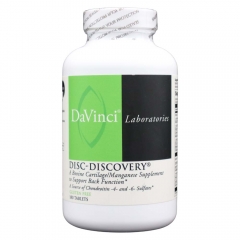


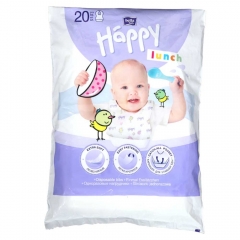
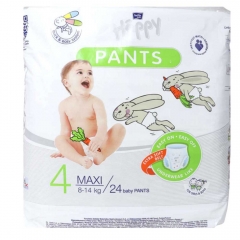
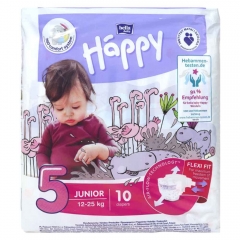



 KHUYẾN MÃI LỚN
KHUYẾN MÃI LỚN Hỗ Trợ Xương Khớp
Hỗ Trợ Xương Khớp Bổ Não & Tăng cường Trí Nhớ
Bổ Não & Tăng cường Trí Nhớ Bổ Sung Collagen & Làm Đẹp
Bổ Sung Collagen & Làm Đẹp Bổ Thận, Mát Gan & Giải Độc
Bổ Thận, Mát Gan & Giải Độc Chăm Sóc Sức khỏe Nam Giới
Chăm Sóc Sức khỏe Nam Giới Chăm Sóc Sức khỏe Nữ Giới
Chăm Sóc Sức khỏe Nữ Giới Chăm sóc Sức khỏe Trẻ Em
Chăm sóc Sức khỏe Trẻ Em Thực Phẩm Giảm Cân, Ăn Kiêng
Thực Phẩm Giảm Cân, Ăn Kiêng Bổ Sung Vitamin & Khoáng Chất
Bổ Sung Vitamin & Khoáng Chất Bổ Tim Mạch, Huyết Áp & Mỡ Máu
Bổ Tim Mạch, Huyết Áp & Mỡ Máu Bổ Mắt & Tăng cường Thị lực
Bổ Mắt & Tăng cường Thị lực Điều Trị Tai Mũi Họng
Điều Trị Tai Mũi Họng Sức Khỏe Hệ Tiêu hóa
Sức Khỏe Hệ Tiêu hóa Chăm Sóc Răng Miệng
Chăm Sóc Răng Miệng Chống Oxy Hóa & Tảo Biển.
Chống Oxy Hóa & Tảo Biển.